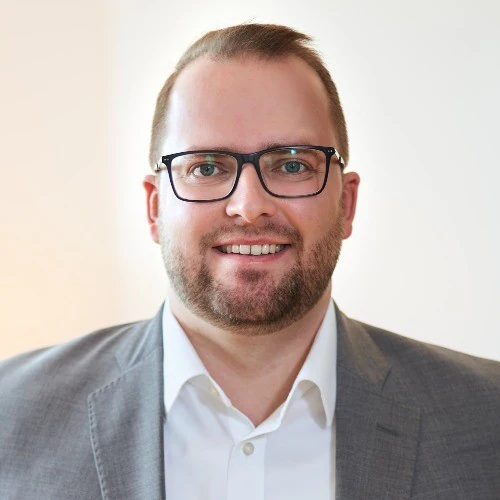
The nationwide fibre rollout is crucial for Germany’s competitiveness and digital progress. But despite the urgency, Germany is lagging behind. In mid-2024, only 23 percent of households were connected to the fibre network (homes connected), and only 11 percent had booked a fibre connection.
Why is the expansion going so slowly? What challenges need to be overcome? And above all, what solutions can be used to accelerate the process? To answer these questions, we surveyed twelve telecommunications companies and put their answers into context with further analysis. The results highlight the current challenges and identify specific measures that can be taken to accelerate the expansion of fiber optic networks in Germany.
The most important facts in 30 seconds
- A rapid expansion of the fiber-optic network is essential to meet the challenge of increasing data consumption and to avoid network bottlenecks. In Germany, there are several factors hindering the expansion.
- The biggest hurdle from the telecommunications companies’ point of view is the complexity and duration of approval procedures.
- Even though some providers have already built up their own civil engineering capacities, they are facing a shortage of skilled workers in the area of planning and construction management.
- High construction costs, the increased interest rate level and the restrained demand for fiber optic connections threaten the economic efficiency of many projects.
The challenging way to a nationwide fibre infrastructure
It has long been no secret that Germany is lagging behind in the expansion of fibre networks. In September 2023, the fibre rollout rate (homes passed) in the EU states and the United Kingdom was 64.5 percent of households on average. In Germany, on the other hand, the rate was only 40 percent of households. In view of the constant increase in data consumption, the question of solutions for faster expansion is becoming more and more urgent.
According to telecommunications companies, the complexity and duration of the approval process is the biggest obstacle for fiber-optic projects. Cooperation with construction and general contractors, the shortage of skilled workers, high expansion costs and regional competition are also seen as problematic. Challenges with a lower perceived relevance include limited civil engineering capacity, low customer demand and the lack of co-deployment in infrastructure projects.
“We have to accelerate the fibre rollout today to avoid bottlenecks tomorrow. Old networks often still meet current demand. However, data consumption will continue to double every three years in the future and the construction of physical infrastructure takes a lot of time and therefore requires a corresponding lead time.”
Reduce bureaucracy and accelerate approval procedures
When it comes to approving fibre projects, telecommunications providers face a multitude of regulations that differ in detail from federal state to federal state and from municipality to municipality. Particularly in the case of small expansion projects, the complexity of approval procedures has a significant impact on profitability. At present, it makes no difference whether the expansion is a hundred meters or several kilometers – the approval processes remain just as complex.
In addition to increasing the regulatory efficiency and simplifying approvals, small projects could be excluded from the approval processes. The approval of entire expansion areas instead of individual routes could accelerate the expansion process, as could the imposition of contractual penalties if areas are not expanded contemporary after they have been approved.
Download the survey-based analysis
Challenges of a comprehensive fibre rollout
Civil engineering capacities are increasing, but there is a shortage of skilled workers for construction supervision
Fibre providers also attach great importance to cooperation with construction companies and general contractors. The main challenge is to establish long-term cooperations and thus enable reliable planning and coordination. In practice, however, the quality of the work performed is often inadequate, leading to rework, delays and increased costs.
To mitigate the problems, some market participants have already set up their own civil engineering companies or acquired stakes in construction companies. Others are setting up their own teams to supervise construction. However, the market offers only a few qualified specialists in this area. As a result, telecommunications companies have started to develop their own training programs, to cooperate more closely with educational institutions and to automate individual activities using AI solutions.
The economic viability of many fibre projects hangs in the balance
In addition to the bureaucratic and construction challenges, market participants are also facing financial challenges, increasing cost pressure and a lack of customer demand. Due to higher construction costs, delays and increased interest rates, many projects are no longer profitable. It is becoming increasingly difficult to obtain capital from investors.
“In some areas, closer cooperation in the telecommunications industry is essential. This applies, for example, to the cross-provider use of networks as part of open access partnerships in order to increase network utilization.”
In the long term, there is no alternative to an expanded fibre network in order for the infrastructure to cope with the continuously increasing data consumption and for Germany to remain competitive. On average, a fiber-optic network consumes only half the electricity of a VDSL network and a third of an HFC network. However, if the expansion continues at the current pace, the fiber-optic network will not be fully laid until 2032. And even then, only 63 percent of residential and business units are expected to be connected.













